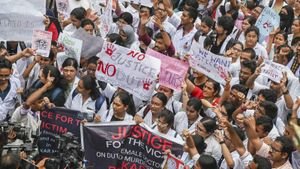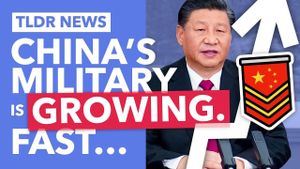Canada's relationship with India has reached a boiling point, threatening diplomatic exchanges and causing anxiety among its diverse immigrant population. The tension escalated when Prime Minister Justin Trudeau revealed allegations connecting the Indian government to the June 2023 assassination of Sikh leader Hardeep Singh Nijjar on Canadian soil. These claims, asserting Indian officials' involvement, have led to diplomatic tit-for-tat, with Canada expelling several Indian diplomats and India retaliatory measures to counter what it deems unfounded accusations.
Recent sessions of Canada's parliamentary national security committee have shed light on the crisis. A senior Canadian official testified about Indian Minister of Home Affairs Amit Shah's alleged role as the orchestrator of plots against Canadian Sikh communities. This added another layer of complexity to the already fraught situation, starting from Trudeau's earlier accusations against India. Notably, Indian officials have outright dismissed these claims, maintaining they are merely products of Trudeau's political maneuverings.
Since the initial claims emerged, the Canadian intelligence agency has indicated the likelihood of India conducting cyber espionage activities against Canada as tensions rise. Caroline Xavier, who heads Communications Security Establishment Canada, suggested potential cyber threats could escalate from India as retaliatory actions against Canadian immigrants and interests may be considered. India has long been identified by Canadian intelligence as a rising threat due to cyber warfare capabilities, raising alarms about the safety of digital infrastructures within Canada.
The immigration system, particularly visa processing for Indian nationals, is facing complications amid these diplomatic tensions. India is the leading source for temporary foreign workers and international students, yet current geopolitical strains are creating backlogs. Many residents, particularly those connected to India's Sikh community, have expressed their concerns, raising alarms over rising anti-immigration sentiment and fears of divisive rhetoric taking root.
Reportedly, the Canadian government has received numerous inquiries from immigrants worried about the potential backlash they might face, especially with divisive narratives brewing online. Some residents of Saskatchewan have noted the worries expressed by the Sikh community, with some members fearing this rift could deepen divides among South Asians, particularly between Sikh and broader Hindu communities.
Lakshay, a resident, commented on the negative social media climate, sensing how recent events are fueling discomfort and tension. He stated, "I think there's apprehension among people about how this tension will affect our standing here. We don't want to see divisions grow over this." This sentiment is echoed across various diasporas, leading to worries of social cohesion fracturing due to external political disagreements.
Historically, the Sikhs have faced challenges within Canada, especially linked to the Khalistani movement, which seeks to create a separate Sikh state, recognized by some and contested by others. The rise of Khalistani separatism dating back decades has been contentious. Now, the political rhetoric surrounding Nijjar's assassination has reframed the focus on how Canadian Sikh nationals are perceived within both Canada and India, complicate efforts to resolve the current standoff.
The United States has also weighed in on the mushrooming conflict, labeling Canada’s allegations against Shah as “concerning.” The U.S. has reiterated its support for Canada and will continue monitoring the situation closely. This U.S. involvement is pivotal, as any repercussions from this crisis could reverberate through North American trade and diplomatic relationships.
Opinions remain sharply divided on how to approach diplomatic relations moving forward. Some suggest Canada should adopt caution, avoiding harsher actions against India until more evidence can be gathered. Experts are concerned about the possible lengths India may go to maintain stability, possibly at the cost of attacking Canada's sovereignty. The complexity grows with Canada’s pivotal diaspora ties to India, drawing the possibility of sensitive foreign policy challenges.
Vina Nadjibulla from the Asia Pacific Foundation highlighted, "If charges emerge against individuals residing within India, it might compel Canada to pursue extradition processes, which could take years. India’s cooperation is, understandably, unlikely, which would reinforce tensions."
With the murder trial of the men charged with Nijjar’s death pending, Canada is facing a tightrope walk between addressing domestic outcry and managing international relations without tipping the scales to more significant confrontations.
Critically, as the situation continues to unravel, both nations must navigate the minefield of allegations, aspirations, and potential repercussions with calculated diplomacy. The road to resolution may still be foggy, yet it is imperative for both governments to strive for dialogue, seeking to dismantle the echoes of conflict rather than letting those echoes grow louder. The presence and safety of immigrant communities, particularly those entwined with both nations' histories, must be at the forefront of any forthcoming negotiations, ensuring all voices are included and heard.



